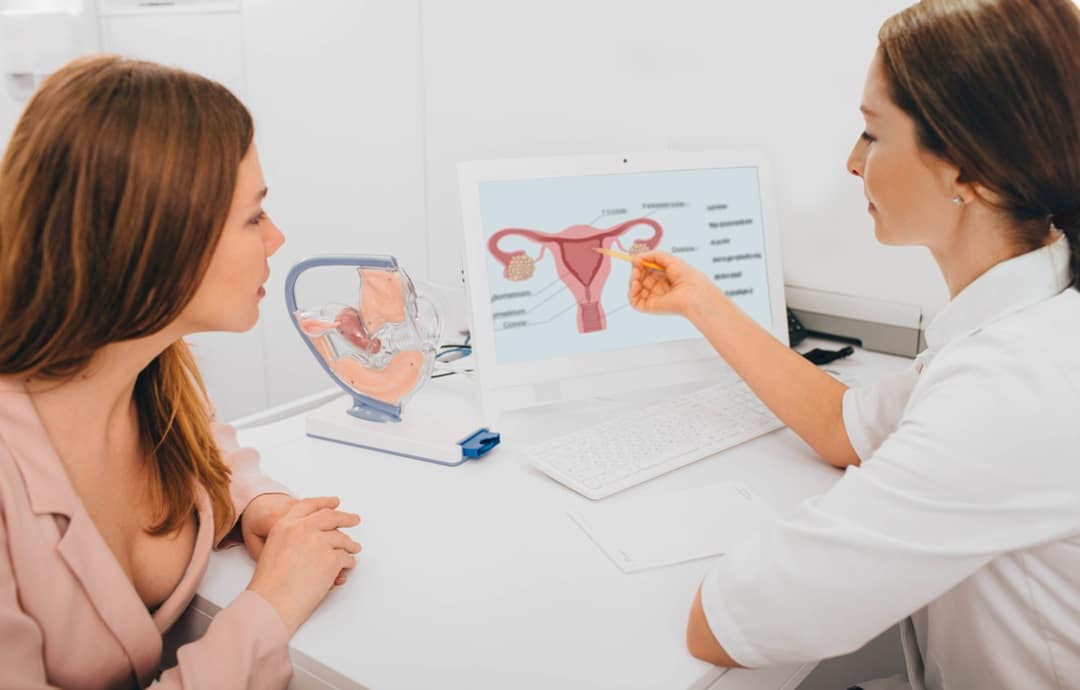Unraveling the Mysteries of Gynecological Health: Education and Empowerment
Catagory: Gynaecology & Obstetricts Author: Dr Rekha Prabhu

In the realm of women’s health, understanding and prioritizing gynecological well-being is paramount. Yet, for many, this aspect of healthcare remains shrouded in mystery and misunderstanding. Fortunately, with the guidance of experts like Dr. Rekha Prabhu, renowned as the Best Gynecologist in Vijayawada, navigating this domain becomes more accessible. Let’s delve into the intricacies of gynecological health, empowering women with knowledge and awareness.
Understanding Gynecological Health
Gynecological health encompasses a wide array of conditions and concerns specific to the female reproductive system. From menstrual irregularities to fertility issues and beyond, it’s a complex terrain deserving attention and care. Education serves as the cornerstone of gynecological health, enabling individuals to recognize symptoms, seek timely medical intervention, and make informed decisions.
Importance of Regular Check-ups
Routine gynecological check-ups are not merely recommended; they are imperative for maintaining overall health and wellness. Dr. Rekha Prabhu, with her expertise and compassionate approach, emphasizes the significance of regular screenings and examinations. These appointments offer opportunities for early detection of potential issues, preventive care measures, and personalized guidance tailored to each patient’s needs.
Addressing Common Concerns
Many women hesitate to discuss gynecological issues due to embarrassment or fear. However, it’s crucial to normalize these conversations and prioritize health over discomfort. Whether it’s discussing menstrual hygiene, contraceptive options, or addressing symptoms of reproductive disorders, open dialogue fosters a supportive environment conducive to optimal well-being.
Promoting Reproductive Education
Empowering women with comprehensive reproductive education is a cornerstone of gynecological health advocacy. Through workshops, seminars, and informational resources, individuals gain insights into reproductive anatomy, menstrual health, family planning, and menopausal transitions. Armed with knowledge, women can advocate for their health, engage in meaningful discussions with healthcare providers, and make empowered choices.
Navigating Fertility Challenges
Infertility affects millions of couples worldwide, yet it remains a topic fraught with stigma and misconception. Dr. Rekha Prabhu, recognized as a leader in fertility care, offers compassionate support and evidence-based interventions to couples facing fertility challenges. Through fertility assessments, assisted reproductive technologies, and holistic approaches, she guides patients on their journey to parenthood with sensitivity and expertise.
Holistic Approach to Women’s Wellness
Gynecological health extends beyond the confines of reproductive organs; it encompasses the holistic well-being of women at every stage of life. From adolescence to menopause and beyond, nurturing physical, emotional, and mental health is paramount. Dr. Rekha Prabhu advocates for a holistic approach to women’s wellness, integrating nutrition, exercise, stress management, and preventive healthcare measures into patient care plans.
Conclusion: Empowering Women Through Knowledge
In conclusion, gynecological health is not a topic to be shrouded in mystery or taboo; it’s a vital aspect of overall well-being deserving of attention, understanding, and advocacy. With the guidance of experts like Dr. Rekha Prabhu, the Best Gynecologist in Vijayawada, women can embark on a journey of education, empowerment, and proactive healthcare. By prioritizing regular check-ups, open communication, and comprehensive reproductive education, we can unravel the mysteries of gynecological health and pave the way for a healthier, empowered future.
Recent Post
-
Common Gynecological Issues and When to See a Specialist in Vijayawada: Insights
-
Gynecological Health for Teens: Expert Guidance from Vijayawada Specialists
-
Embracing Women's Wellness: The Holistic Path to Reproductive Health
-
Unlocking Gynecological Health: Expert Insights by Dr. Rekha Prabhu
-
Beyond Birth: Navigating Women's Health Throughout Every Stage of Life
-
Yoga for Women’s During Pregnancy
-
Genetic Testing in Gynecological Healthcare
-
Exercises for Pelvic Floor Health
-
Unveiling the Vital Link: Sleep and Women's Health | Dr Rekha Prabhu
-
Exploring the Benefits of Meditation and Yoga for Women's Health
-
Understanding and Managing Common Pregnancy Complications
-
Endometriosis: Diagnosis, Treatment, and Lifestyle Management
-
The Connection Between Diabetes and Pregnancy
-
What You Need to Know About Uterine Fibroids
-
The Connection Between Menopause and Osteoporosis
-
The Importance of Regular Gynecological Checkups
-
The Benefits of Breastfeeding for Mother and Baby
-
Essential Tips for a Healthy Pregnancy: Diet, Exercise, and Expert Guidance
-
The Role of Genetics in Gynecology and Obstetrics
-
The Risks and Benefits of Hormone Replacement Therapy
FAQ (Frequently Asked Questions)
How often should I see my obstetrician during pregnancy?
Regular prenatal visits are typically scheduled once a month during the first two trimesters, then every two weeks in the third trimester, and finally weekly in the last month of pregnancy.
What are some warning signs during pregnancy that require immediate medical attention?
Warning signs during pregnancy that require immediate medical attention include vaginal bleeding, severe abdominal pain, decreased fetal movement, persistent headaches, and signs of preterm labour.
Can I continue exercising during pregnancy?
Yes, most women can continue exercising during pregnancy, but it’s essential to consult with your obstetrician before starting or continuing any exercise regimen to ensure it’s safe for you and your baby.
What pain relief options are available during labour?
Pain relief options during labour include natural techniques such as breathing exercises and relaxation techniques, as well as medical interventions such as epidurals and analgesics administered intravenously.
How can I promote postpartum recovery and healing?
Promoting postpartum recovery involves getting adequate rest, staying hydrated, eating nutritious foods, practicing good hygiene, and seeking support from friends, family, and healthcare providers.
